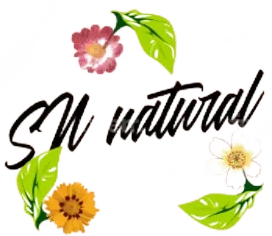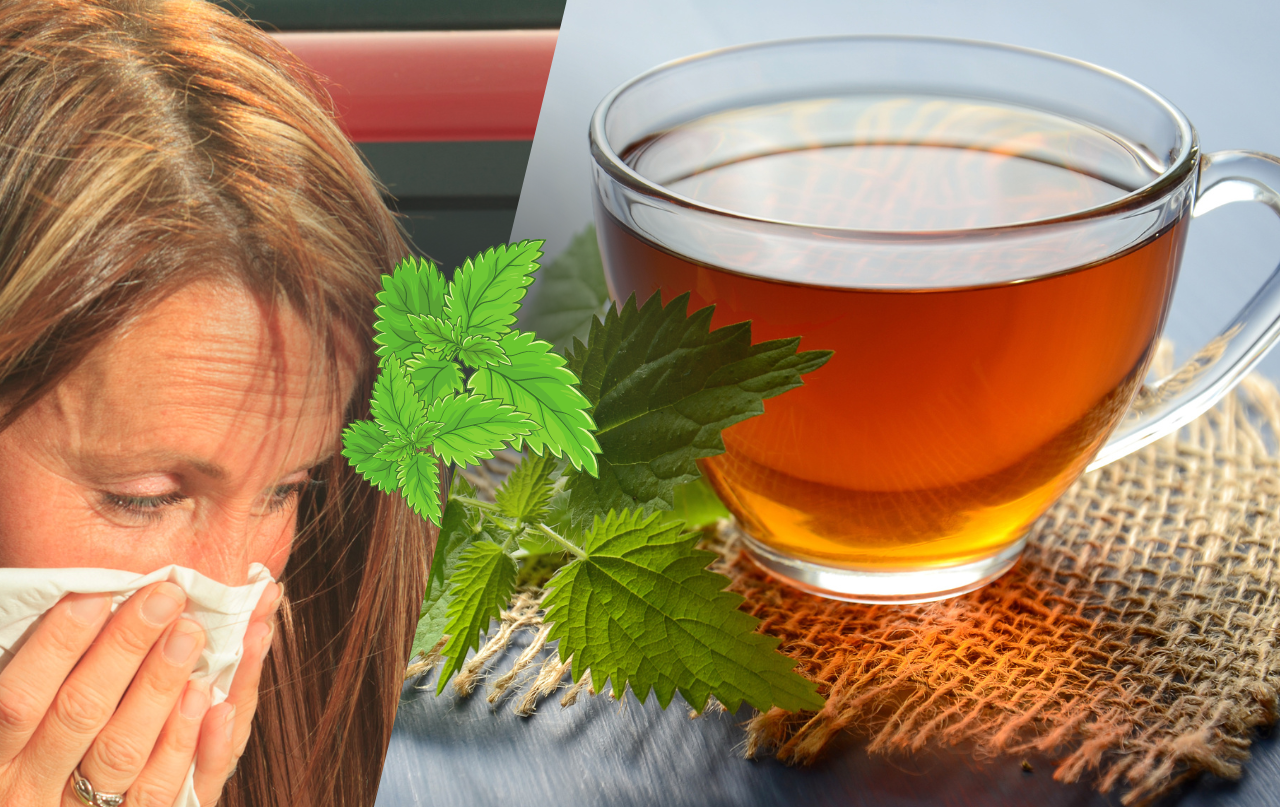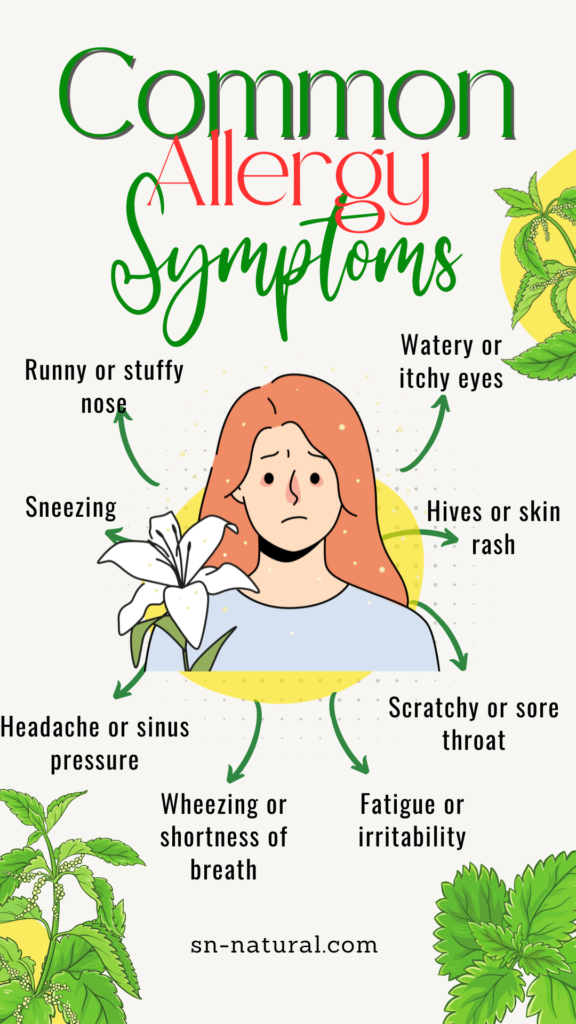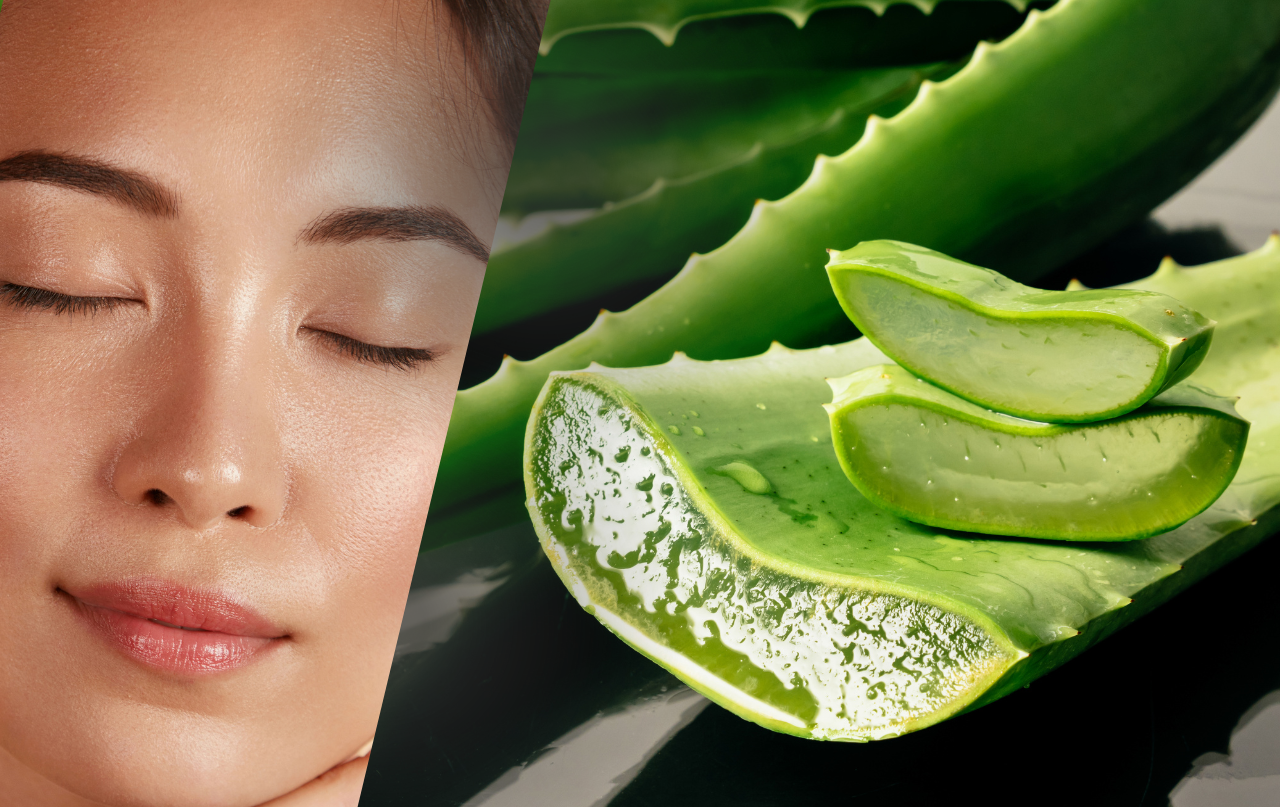Are you tired of suffering from allergies every year? Do you dread the arrival of spring, knowing that it will bring with it a runny nose, itchy eyes, and sneezing fits? If so, you’re not alone. Millions of people around the world suffer from seasonal allergies, and many of them are looking for a natural way to alleviate their symptoms. Fortunately, there’s a simple solution that’s been used for centuries: nettle tea. In this article, we’ll explore the benefits of nettle tea for allergies, how it works, and how to make it at home.
1. What are allergies?
Allergies are a common condition that occurs when the immune system overreacts to a normally harmless substance, such as pollen, dust, or pet dander. The immune system produces an antibody called immunoglobulin E (IgE) to fight off the allergen, which triggers the release of histamine and other chemicals in the body. This results in inflammation, swelling, and other allergy symptoms.
2. Common allergy symptoms
Allergies symptoms can affect different parts of the body, depending on the allergen and individual sensitivity. Some of the most common allergy symptoms include:
- Runny or stuffy nose
- Sneezing
- Watery or itchy eyes
- Scratchy or sore throat
- Coughing
- Wheezing or shortness of breath
- Hives or skin rash
- Headache or sinus pressure
- Fatigue or irritability
3. How do allergies affect the body?
Allergies can have a significant impact on the body, both physically and mentally. Allergy symptoms can make it difficult to breathe, sleep, work, or enjoy daily activities. Chronic allergies can also lead to other health problems, such as sinus infections, ear infections, asthma, and eczema. Moreover, allergies can affect mood and cognitive function, causing anxiety, depression, brain fog, and memory problems.
4. Traditional allergy treatments
Conventional allergy treatments usually involve over-the-counter or prescription medications, such as antihistamines, decongestants, nasal sprays, eye drops, and corticosteroids. These drugs can provide temporary relief from allergy symptoms but often come with side effects, such as drowsiness, dizziness, dry mouth, and rebound congestion. Moreover, some allergy medications can interact with other drugs or exacerbate pre-existing conditions, such as glaucoma, high blood pressure, or diabetes.
5. What is nettle tea?
Nettle tea is a herbal infusion made from the leaves and roots of the stinging nettle plant (Urtica dioica). Nettle has a long history of medicinal use in various cultures, from ancient Greece to traditional Chinese medicine. Nettle tea is rich in vitamins, minerals, antioxidants, and bioactive compounds, such as flavonoids, carotenoids, and lignans. Nettle tea has a mild, earthy taste and can be consumed hot or cold.
6. How does nettle tea help with allergies?
Nettle tea has been shown to have anti-inflammatory, antihistaminic, and immunomodulatory properties, which can help reduce allergy symptoms and improve overall immune function. The flavonoids and other bioactive compounds in nettle tea can inhibit the release of histamine and other inflammatory mediators, as well as modulate the activity of immune cells involved in allergic reactions. Moreover, nettle tea can support the liver and kidneys in eliminating toxins and allergens from the body, which can reduce the burden on the immune system.
7. What are the benefits of drinking nettle tea?
Aside from allergy relief, nettle tea has many other health benefits. Some of the most notable ones include:
- Improving digestion: Nettle tea can stimulate digestive enzymes and bile production, which can aid in the digestion and absorption of nutrients. Nettle tea can also relieve constipation, diarrhea, and other digestive issues.
- Strengthening bones: Nettle tea is rich in calcium, magnesium, and other minerals that are essential for bone health. Nettle tea can also reduce the risk of osteoporosis and other bone diseases.
- Boosting immunity: Nettle tea can enhance the immune system’s response to infections and other challenges. Nettle tea can also reduce inflammation and oxidative stress, which can contribute to chronic diseases.
- Supporting skin health: Nettle tea can soothe skin irritations, such as eczema, psoriasis, and acne. Nettle tea can also promote skin hydration and elasticity.
- Relieving pain: Nettle tea can alleviate joint pain, muscle pain, and menstrual cramps. Nettle tea can also reduce the frequency and severity of migraines.
8. How to make nettle tea at home
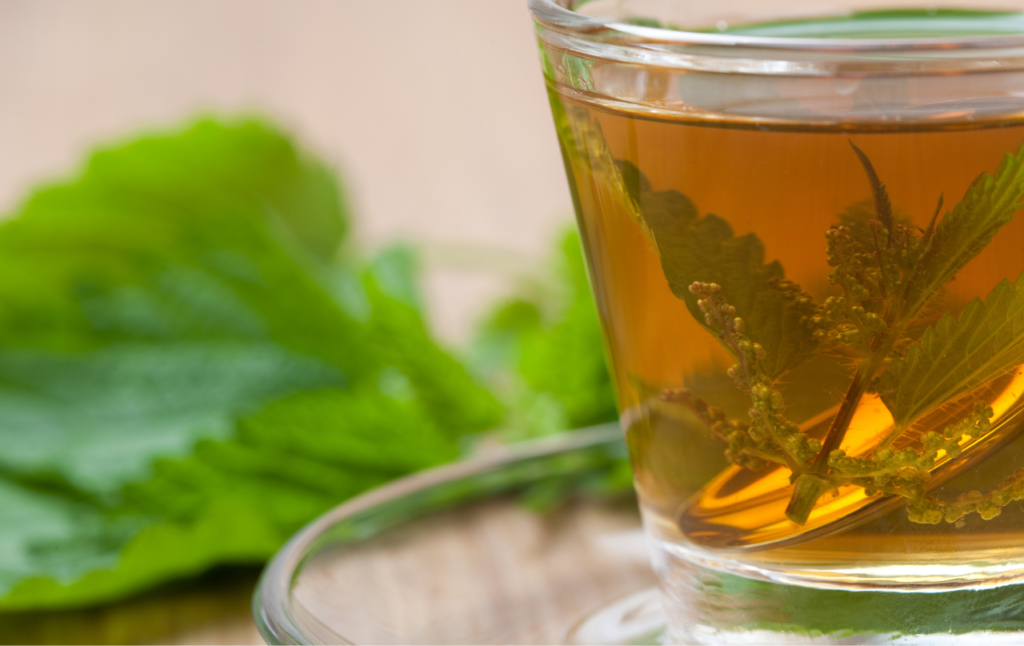
Making nettle tea at home is easy and inexpensive. Here’s a simple recipe to follow:
Ingredients:
- 1 cup of fresh nettle leaves or 1/2 cup of dried nettle leaves
- 4 cups of water
- Honey, lemon, or ginger (optional)
Instructions:
- To get rid of any dirt or debris, thoroughly rinse the nettle leaves under cold water.
- Place the nettle leaves in a pot or teapot.
- Boil the water and pour it over the nettle leaves.
- Steep the nettle leaves for 5-10 minutes, depending on your desired strength.
- Strain the nettle tea into a cup or mug.
- Add honey, lemon, or ginger if desired.
- Enjoy your nettle tea hot or cold.
Most of us lead highly busy lives or live in large cities where access to fresh nettles is limited. Don’t worry.
Nettle tea may also be prepared with organic nettle tea bags purchased from a store near you or an internet retailer. You can also check for natural nettle capsules.
9. Precautions when using nettle tea
While nettle tea is generally safe for most people, there are some precautions to keep in mind:
- Nettle leaves can cause skin irritation if touched directly. Use gloves or tongs when handling fresh nettle leaves.
- Nettle tea can interact with certain medications, such as blood thinners, diuretics, and diabetes drugs. Consult your doctor before using nettle tea if you’re taking any medications.
- Nettle tea can cause mild side effects, such as stomach upset, diarrhea, or dizziness. Reduce your intake or stop using nettle tea if you experience any adverse reactions.
- Nettle tea is NOT recommended for pregnant or breastfeeding women, as it can stimulate uterine contractions and affect milk production.
10. Other herbal remedies for allergies
Nettle tea is not the only natural remedy for allergies. Here are a few different alternatives to consider:
- Quercetin: A flavonoid found in onions, apples, and citrus fruits, quercetin can help stabilize mast cells and reduce histamine release.
- Butterbur: A herb that has been used for centuries to treat allergies, butterbur can inhibit the activity of leukotrienes and other inflammatory mediators.
- Probiotics: Beneficial bacteria found in fermented foods and supplements can support immune function and reduce inflammation.
- Vitamin C: A powerful antioxidant found in citrus fruits, berries, and leafy greens, vitamin C can help reduce histamine levels and boost immune function.
- Essential oils: Some essential oils, such as peppermint, lavender, and eucalyptus, can relieve allergy symptoms and improve respiratory function when used topically or aromatically.
However, it’s important to note that not all natural remedies are safe or effective for everyone. Always consult with your doctor or a qualified healthcare professional before trying any new treatment, especially if you have a pre-existing medical condition or take medication.

11. Tips for preventing allergies
Preventing allergies is a crucial step in staying healthy and avoiding the discomfort that allergies can bring.
Here are some tips to help you reduce your risk of developing allergies:
- Keep your home clean: Regularly clean your living space to reduce the amount of allergens that can accumulate. Use a HEPA-filtered vacuum cleaner and dust with a damp cloth.
- Avoid outdoor allergens: Stay indoors on days when the pollen count is high, especially during peak allergy season. Keep windows and doors closed to prevent allergens from entering your home.
- Use an air purifier: An air purifier with a HEPA filter can help remove allergens from the air in your home.
- Wash your hands frequently: Wash your hands regularly, especially before touching your face or eating, to reduce the risk of exposure to allergens.
- Avoid smoking: Smoking and exposure to secondhand smoke can worsen allergy symptoms and increase the risk of developing allergies.
- Exercise regularly: Regular exercise can boost your immune system and help reduce allergy symptoms.
- Stay hydrated: Drinking plenty of water can help flush allergens out of your system and reduce inflammation.
- Eat a healthy diet: A diet full of healthy grains, veggies, and fruits can give the nutrients your body needs to fight off allergies and maintain a healthy immune system.
- Limit alcohol consumption: Alcohol can worsen allergy symptoms and increase inflammation.
- Avoid stress: Stress can weaken the immune system and worsen allergy symptoms. Try relaxation techniques like meditation or yoga to reduce stress.
- Consult with a healthcare professional: If you have a family history of allergies or are experiencing severe allergy symptoms, talk to a doctor or healthcare professional about preventive measures you can take.
By incorporating these tips into your daily routine, you can reduce your risk of developing allergies and live a healthier, happier life. Remember, prevention is key when it comes to allergies, and taking steps to stay healthy can make all the difference in the world.
Conclusion
Allergies can be a real pain, but with the help of natural remedies like nettle tea, you can reduce your symptoms and improve your overall health. Nettle tea is a safe, affordable, and effective way to soothe your allergies and boost your immune system. Whether you drink it hot or cold, with honey or without, nettle tea is a delicious and nutritious beverage that can provide you with numerous health benefits.
So next time you feel the sniffles or sneezes coming on, reach for a cup of nettle tea and enjoy the natural relief it provides. With its anti-inflammatory and antihistaminic properties, nettle tea is the perfect way to stop allergies in their tracks and live your life to the fullest.
FAQs
Is nettle tea safe for children?
1.Nettle tea is generally safe for children, but it’s best to consult with a pediatrician before giving it to them.
Can nettle tea cure allergies?
2.Nettle tea cannot cure allergies, but it can help reduce the symptoms and boost the immune system.
How often should I drink nettle tea?
3.You can drink nettle tea 1-3 times per day, depending on your needs and tolerance.
Can I use dried nettle leaves to make tea?
4.Yes, you can use dried nettle leaves to make tea. Simply use half the amount of dried nettle leaves compared to fresh nettle leaves.
Can I add milk to nettle tea?
5.Yes, you can add milk or any other type of milk substitute to nettle tea. However, keep in mind that adding dairy products may increase mucus production and worsen allergy symptoms in some people
